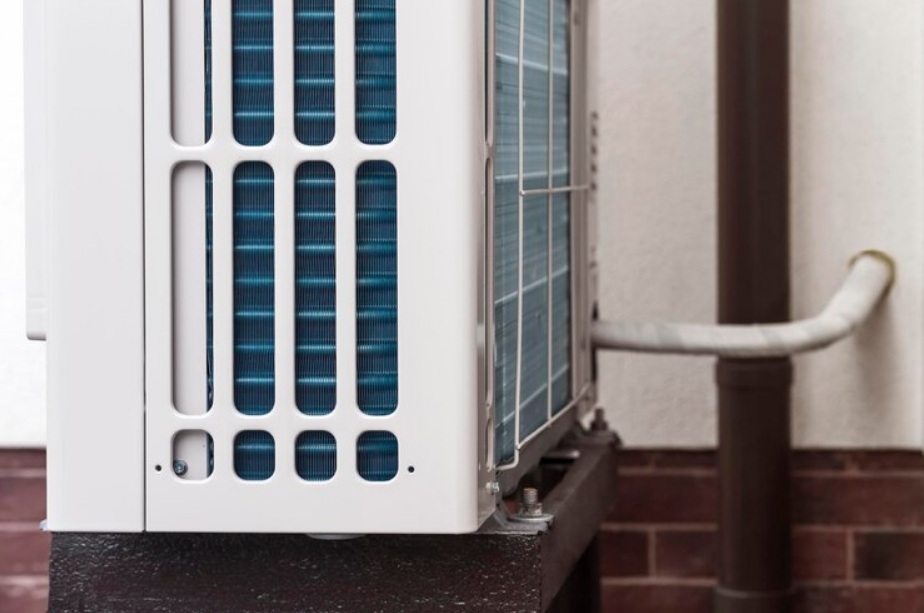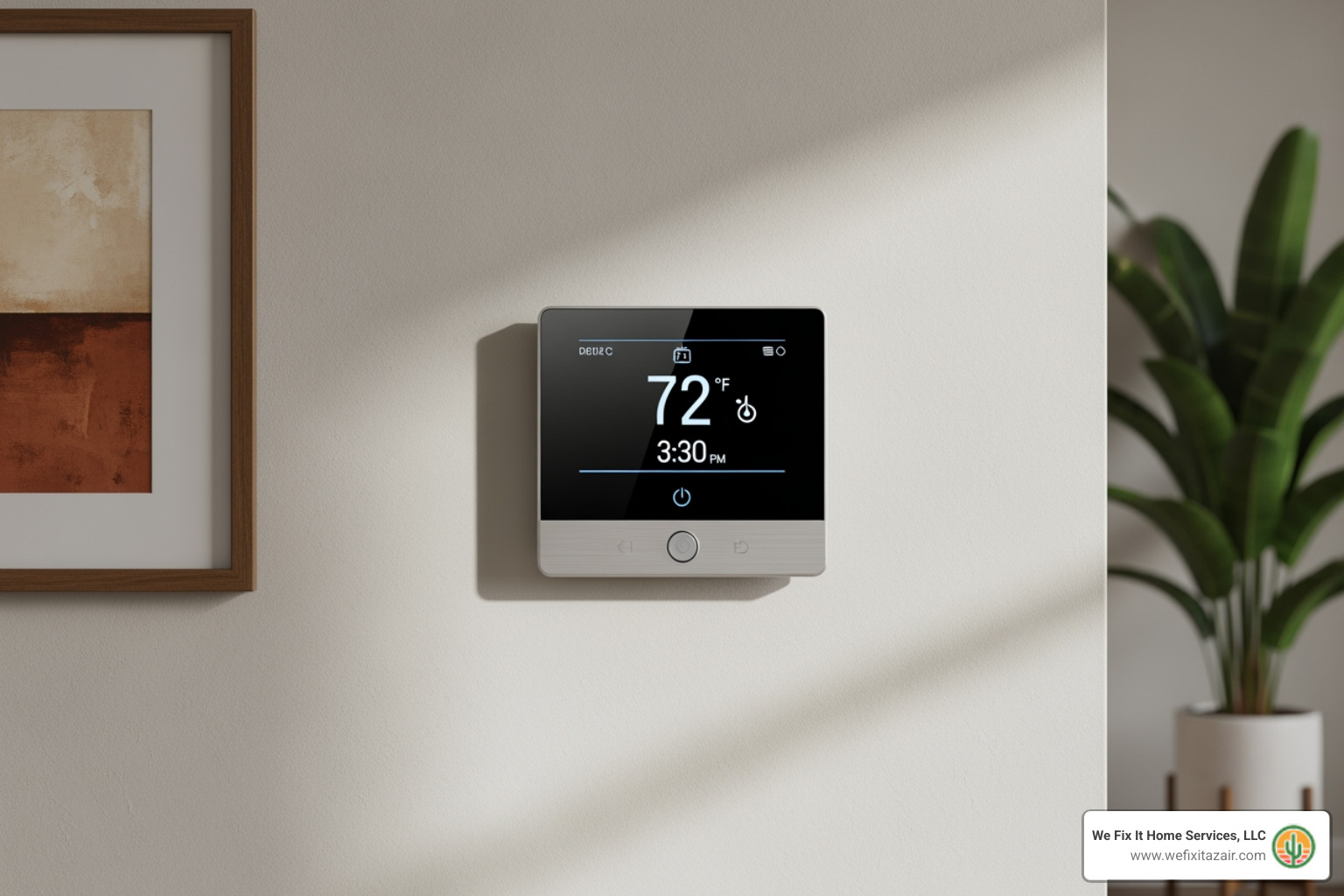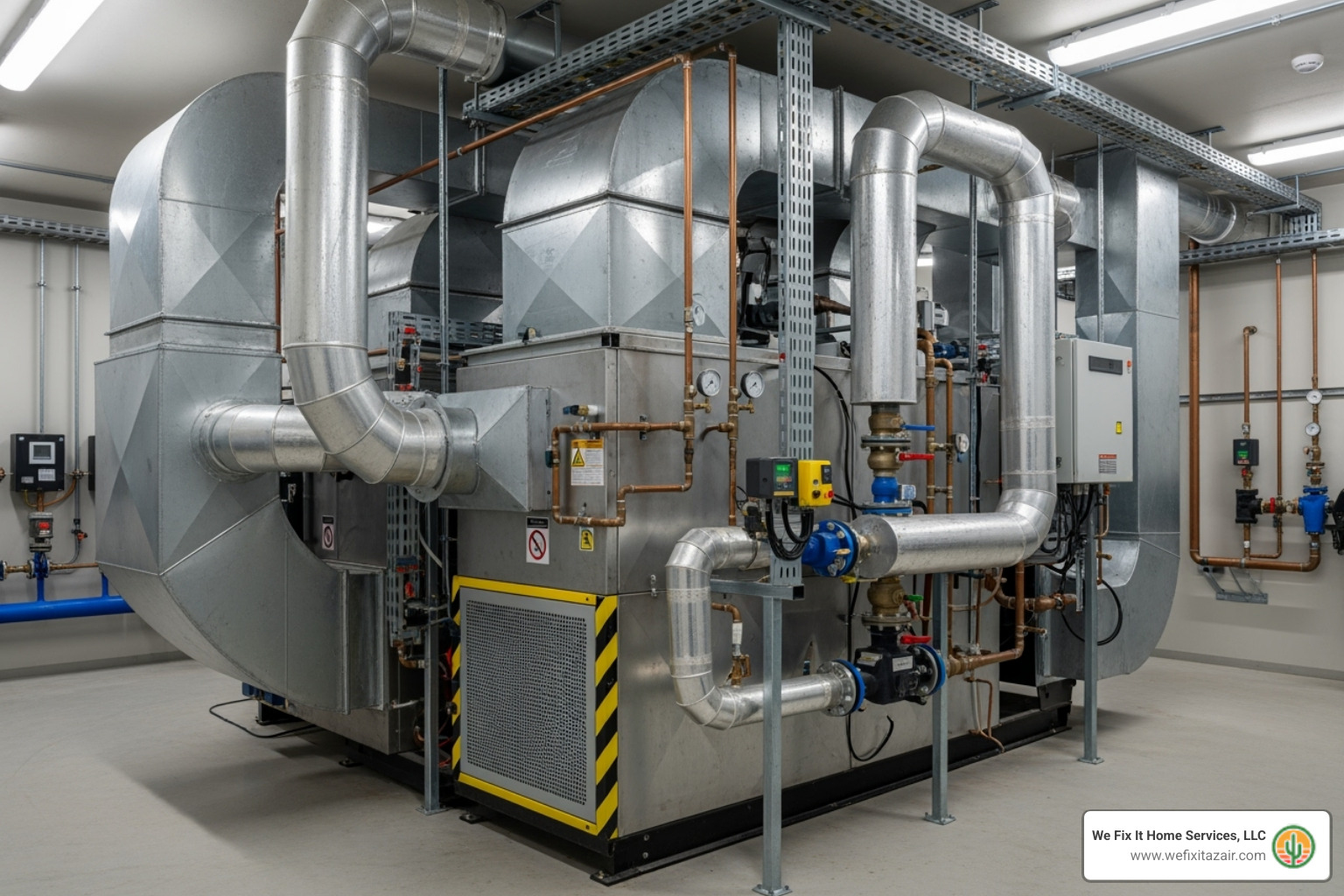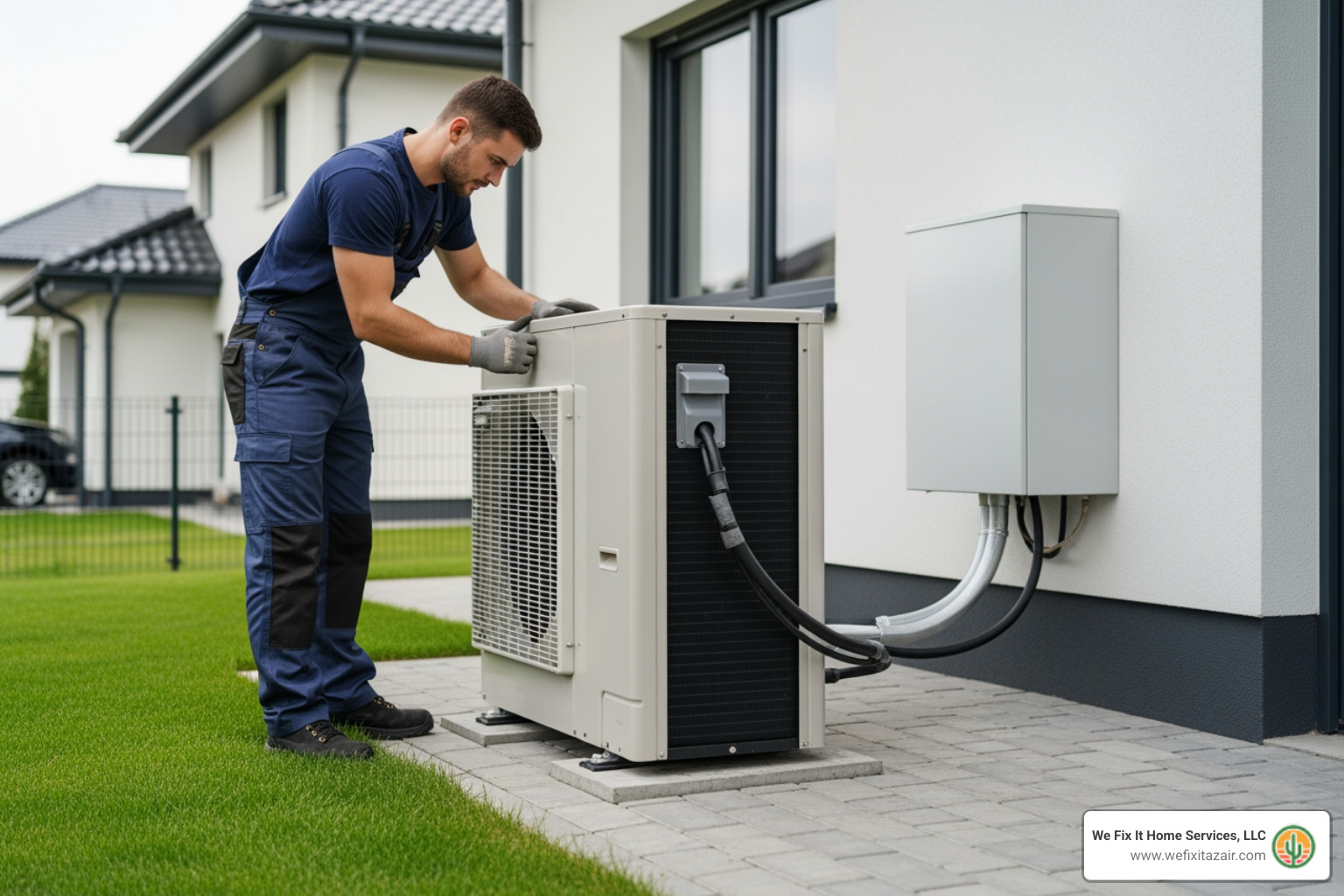Signs Your AC Capacitor Is Failing in Scottsdale

When your AC in Scottsdale stops behaving the way it should, the issue might not be the unit itself but something smaller inside like the capacitor. This component plays a key role in getting your AC to start and keep running. It gives the motors the jolt of energy needed to power up, especially during the heavy cooling load of Scottsdale summers. If it is going bad, you will start running into strange problems that can make your home uncomfortable quickly.
Knowing the early warning signs of a weak or failing AC capacitor can save you from being caught without air when temperatures are high. From delayed starts to odd sounds, these signs often show up before a total breakdown. The sooner you spot them, the less time your house spends heating up. The sections below explain the most common symptoms homeowners in Scottsdale notice when a capacitor starts to fail.
Frequent Symptoms Of A Failing AC Capacitor
Just like a car battery, an AC capacitor wears down over time. Age, heat, and usage all affect how long it performs correctly. Since the climate in Scottsdale leads to long run times for AC units, capacitors here often wear out sooner than expected. Paying attention to signs of trouble helps stop small issues from turning into big repairs.
1. AC Not Blowing Cold Air
One of the most noticeable signs is warm air blowing from the vents when the AC is running. This happens when the capacitor cannot deliver enough power to the compressor or fan motor. Without the right voltage, those components may not turn on at all, even if the thermostat is set to cool.
2. Delayed Start-Up
Another sign is when the unit hesitates before starting. You might hear a clicking sound, followed by a delay before the system finally powers up. This delay usually means the capacitor is struggling to provide the needed electrical boost. It is like trying to turn on a ceiling fan with very low power. It just will not start smoothly.
3. Humming Noise
If you hear a steady humming sound near your outdoor unit, but the fan is not spinning, that is a red flag. This noise means the motor is getting power but cannot start. Often, that is because the capacitor cannot hold or deliver the charge it is supposed to. Some homeowners describe it as a gentle buzzing that does not go away.
4. Random Shut-Offs
A working AC system cycles on and off to regulate the temperature. If your unit randomly turns off soon after it starts or never completes a full cooling cycle, the capacitor may be failing. Short run times put extra strain on the system and make rooms heat up faster than they should.
5. Higher Energy Bills
When components run inefficiently due to low voltage support, your system ends up working harder and longer. That drives up your energy bills without actually improving comfort. If your bill has suddenly increased without changes to your routine or thermostat settings, that is something worth checking.
Scottsdale summers put AC systems under a lot of stress. If your unit displays one or more of these signs, the capacitor could be the source of the issue. It is not usually something visible, but these symptoms are noticeable. Catching them early can help you avoid major cooling problems and an overheated home during peak heat.
Immediate Actions To Take
If you suspect your AC capacitor is starting to fail, there are a few basic steps you can take while waiting for expert attention. Keep safety at the top of your list and avoid handling internal electrical components. Capacitors store electricity even after the unit is powered off, and touching them can lead to serious injury.
Before doing anything, turn off the power to your AC system at the breaker panel. Never assume powering off the thermostat is enough. Once the unit is safely off, a visual inspection can provide clues about whether the capacitor is the source of the issue. If the casing around the capacitor looks bulged or cracked, or there is any sign of leaking fluid, those are clear indicators that something is wrong. These physical changes usually mean the capacitor has overheated or failed internally.
You might be tempted to reset the system or toggle the thermostat in hopes of a quick fix. While this might temporarily get the AC running, it does not deal with the actual problem. Here are a few temporary steps to help stay a little more comfortable while you wait for service:
- Turn on ceiling or portable fans to help circulate cooler air.
- Close blinds and curtains during the heat of the day to slow indoor temperature rise.
- Avoid using heat-producing appliances like ovens or dryers until the problem is fixed.
Keep in mind, these are only short-term measures and should not replace calling in our professionals. If the capacitor is faulty, it needs to be replaced by someone trained to diagnose and install the correct part safely.
When to Call Our Professionals
Some issues might seem manageable for a short time, but if your AC is showing repeated problems, it is better to get a full diagnosis. Persistent symptoms like the unit failing to start, producing warm air, or making unusual sounds all point toward problems that need a licensed professional. Trying to wait it out can lead to bigger repairs and complete system failure, especially during the extreme heat in Scottsdale.
Routine tune-ups also lower the chance of a failing capacitor catching you off guard. During scheduled service, our technicians review all electrical and motor components to find signs of stress or wear. Regular checkups reduce the risk of emergency shutdowns and help extend the life of your entire cooling system.
When a capacitor fails, it often happens quickly. It might show warning signs and then stop working altogether. Relying on our technicians to determine the exact cause and replace the faulty part with the right specifications means your unit can return to full operation sooner. It also helps maintain any warranties and keeps your cooled air flowing safely and effectively.
Ensuring Your AC Stays in Top Shape
Avoiding future capacitor issues often comes down to consistent services and owner awareness. That includes changing filters regularly, keeping outdoor condenser areas clear of debris, and paying attention to changes in how the unit sounds or cycles. Simple steps, like making sure airflow around the outdoor fan is not blocked and avoiding mid-day overuse, can lower the strain on your system.
Scheduling regular maintenance visits helps detect a weakening capacitor before it completely fails. During these routine checkups, our professionals inspect the capacitor’s condition, measure the electrical draw, and confirm it is operating within safe limits. Spotting corrosion, leakage, or reduced output early prevents major problems during the hottest months in Scottsdale.
Capacitor problems can bring your cool air to a stop without much warning. Whether your unit has already shown signs of trouble or you just want to stay ahead of repairs, consistent maintenance helps keep your home comfortable. Even skipping just one visit can lead to missed warning signs. Paying attention to early symptoms, acting quickly, and trusting skilled experts for testing and diagnosis all work together to keep your AC in strong working order.
When a failing AC capacitor disrupts your home cooling, timely repair becomes key to keeping your system running smoothly in Scottsdale. Working with professionals at We Fix It Home Services, LLC ensures that any low voltage issues or component failures are addressed before a minor problem turns into a major inconvenience. Regular attention to your unit can help maintain comfort and prevent additional strain on your cooling system during the intense summer heat. For expert service and dependable solutions, turn to AC repair in Scottsdale to ensure your unit is operating at peak performance. For a quick estimate or to book a service visit, please contact us today.




















Customer Testimonials


























